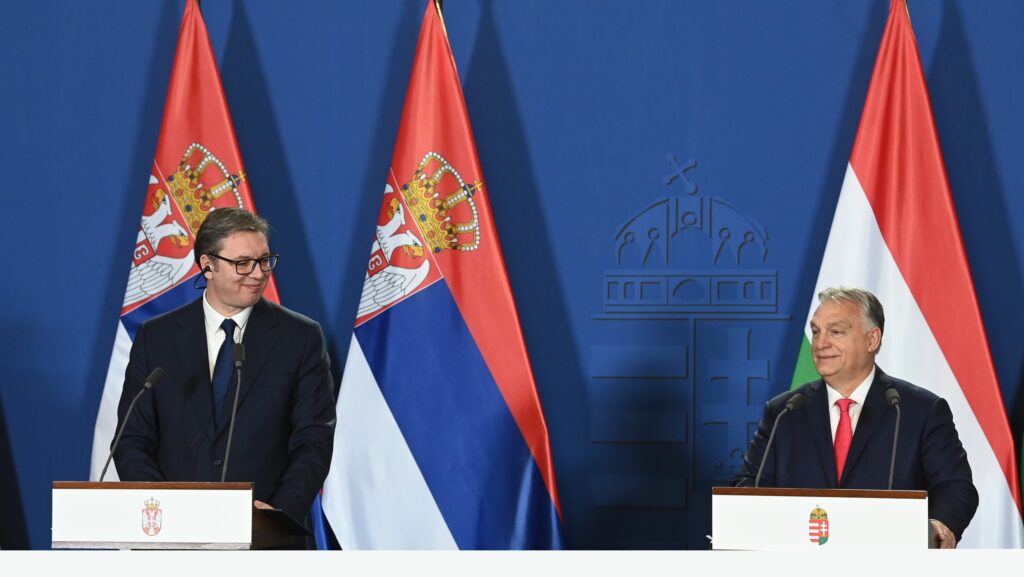As a Spanish conservative committed to building an intellectually vibrant and politically robust movement across Europe, this has become my default opening line—sometimes stated outright, sometimes implied—in private meetings and public speeches.
That message found new relevance during a demanding visit to the United States a couple of months ago, where I participated in two major events: CPAC in Washington, DC, and the Texas Policy Summit in Austin, organized by the formidable Texas Public Policy Foundation. The former gathered leading conservative voices from across the West; the latter radiated renewed energy, placing the Lone Star State at the forefront of an American resurgence under President Trump.
This journey offered a balanced dose of spectacle and substance—mirroring the energy of your proud nation, though one not always fully attentive to the world beyond its shores.
Since then, my efforts to extend an olive branch to my fellow conservatives in the United States stem from the growing tension between the US and Europe—tensions that have intensified following Trump’s swift moves to reshape the global order barely a month into his new term.
Throughout that week, I had the privilege of engaging with leading experts on geopolitics, national security, and international trade. I have learned much. Yet, I have also encountered miscalculations among my conservative friends in America that deserve to be addressed.
The first misunderstanding revolves around the reshaping of the geopolitical landscape. In Washington, I found those who believe Trump seeks a return to the pre-World War II international order—or even further, to a pre-Wilsonian world. In both cases, the perceived adversary is the liberal international order, with the supposed goal being the restoration of the primacy of sovereign nation-states.
But here lies a critical error: the world before Woodrow Wilson wasn’t defined by sovereign nation-states, but by empires. Wilson didn’t dismantle a Westphalian order—he buried an imperial one. The First World War marked the twilight of empires: British, Austro-Hungarian, Ottoman…From their collapse emerged a new global order, one ultimately defined by two 20th-century empires: the USSR and the United States—the latter ultimately the last empire standing after the Cold War I—though one whose geopolitical capital may have just been thrown out the window…
As a result, a return to the pre-Wilsonian era doesn’t precisely herald the rise of sovereign states—it signals the return of imperial competition and, apparently, imperial cooperation.
In this emerging neo-imperial landscape, Europe’s fragmented nations carry little weight in offering a compelling partnership proposal to the United States. This realization struck me in both Washington and Texas, where I was consistently told that, for Europe to remain relevant to America, it must make itself attractive again. Some even argued that ‘Europe must become more appealing to us on the balance sheet than various other competing nations or rival blocs’.
‘Is becoming the United States of Europe the only option available if we seek to restore our marriage with the United States of America?’
However, this analysis is flawed for two reasons. First, despite all the rhetoric about sovereignty, the Trump administration seems to overlook a simple fact: Europe is not a nation-state, nor is the European Union. It is a constellation of diverse countries with some shared and some divergent national interests, and with no unified foreign policy. Is becoming the United States of Europe the only option available if we seek to restore our marriage with the United States of America?
Second, even if European nations were to present a united front, it would be nearly impossible for them to outbid other global players’ appeal to the US—whether revisionist powers or rival trade blocs. That’s why any ‘new framework of cooperation’ must be based, in my opinion, on elements beyond mere economics or defence spending. Our shared history, traditions, and cultural legacy must also be part of the equation.
Let me be clear: Common heritage alone cannot form the foundation of a new alliance. That would be unfair towards the US. Moreover, Europe has been free riding for a long time, and the US is right to say ‘enough is enough’. However, to entirely ignore all that has historically united us (and still does) would also be unfair.
Beyond fairness, which amounts to very little under international realism, such a ‘numbers-based approach’ would also be strategically wrong, for here’s an unsettling reality for my friends in the US: if alliances are judged purely by economic advantage, Europe could also find a ‘better deal’ with China than with the United States. The same applies to Hispanic America, where Trump’s new security perimeter risks pushing the region further into Beijing’s orbit. In short, if you reduce alliances to spreadsheets, don’t be surprised if others start shopping for better offers.
‘If alliances are judged purely by economic advantage, Europe could also find a “better deal” with China than with the United States’
If we are to reconfigure the global order, we must reaffirm that America is not the ‘New World’. It is, rather, the ripest fruit of the Old. We are you, and you are us.
As a parent nurturing a child, Europe has cheered for America’s victories and watched its ascent to global dominance. Like an ageing adult from a young son in his prime, Europe has also benefited from American support through two World Wars and two Cold Wars—one against the USSR and one, now, against China.
Now, however, the US seems determined to fulfil the archetypical narrative by ‘killing the father’. It has turned its back on the Trans-Atlantic alliance as if condemning its ageing, weakened parent to irrelevance and decline.
Europe must wake up and do so quickly. I hope JD Vance’s remarks in Munich served as a necessary wake-up call, as a shock to the system. For indeed, Europe is imperfect. But so has been the United States.
You want to end the war in Ukraine? Fine. But let the record show that it was Putin who drew Europe into this war and you who brought NATO to Russia’s doorsteps. And it is also you who have profited the most from it. You have sold us the gas Russia couldn’t for ‘moral’ reasons, at a significantly higher cost, as it first needed to be liquefied and then purchased in US dollars by any interested buyer. You have spent billions…in your own military industry. US corporations such as BlackRock and JP Morgan Chase were granted the Ukraine reconstruction plan, and it is the US that will now extract Ukrainian rare-earth minerals in the country’s upcoming partition.
You want to dismantle the structures of wokeism? Fine. But let the record show that it was you who exported wokeism to us and the world. COVID-19 may have emerged from Wuhan, but the woke virus was born in Silicon Valley and on American university campuses. You might put the blame on USAID and a wide array of ideologically charged interests. But those were your best and proudest until the day before yesterday.
A friend from the US recently mocked a Spanish company for losing a contract with the US due to its endorsement of DEI policies, calling it a sign of how ‘woke’ Spain has become. That may sadly be the case. However, what he didn’t realize is that this company had adopted DEI because, for years, it had been a prerequisite for operating in the American market.
So now, after decades of exporting gender ideology, critical theory, and identity politics, you want to reverse course? Fine. But the inertia of what you’ve built will take time to dissipate.
You’ve awakened to the damage. Now help us do the same. Don’t leave us to deal alone with the wreckage of the ideology you exported.
Indeed, to a great extent, Europe’s inertia must be blamed on a corrupt bureaucratic elite in Brussels and, perhaps, a real decline of our civilization. But much of our disorientation stems from the shock of your sudden change in alliances—foreign policy relationships take years to build, but can collapse in mere moments, as Trump’s record regrettably shows within a few weeks in office.
‘Indeed, to a great extent, Europe’s inertia must be blamed on a corrupt bureaucratic elite in Brussels and, perhaps, a real decline of our civilization’
You want to undergo a regime change at home? Fine. But please—don’t do this again in a few decades, it is just exhausting to keep up with you. One reshaping of the world order every century is enough. The rest of the world needs time to catch up with you. Your presidential election has been the epicentre of a political earthquake. And, as with most earthquakes, the aftershocks are felt most violently at the periphery, not at the centre.
America is a nation of many virtues, but moderation is not among them. Neither seems to be prudence. In the US, conservatives are the most conservative. Progressives are the most progressive. Your political pendulum swings with a ferocity that breeds social unrest, as you will sadly learn if you continue this road whenever Democrats are back in the White House. For the golden rule is off the table in this new era of American politics.
Europe, despite its flaws, embodies moderation, temperance, and balance. We, however, lack courage and ambition, which we must learn from the US. Neither of us is perfect, and we still have much to learn from each other. From the present and the past. For America has enjoyed a century of hegemony, but Europe dominated intellectually, militarily, and technologically the world for a millennium. We, however decrepit, still have much to offer.
‘We, however decrepit, still have much to offer’
Finally, a last humble plea from one conservative to another. I am proud to be a conservative and a Spaniard. I welcome Trump’s return to power and sympathize with many of his common-sense, conservative positions. By most measures, he is much more preferable to the alternative.
That said, if forced to choose between my ideological preferences and the interests of my country, I am likely to choose the latter. And so will many of your allies across Europe, regardless of whether they sit in government or opposition. Because we, too, are patriots.
The latest elections in Canada are a good example of this phenomenon. The turnaround victory of Mark Carney and the Liberal Party has come with a big assist from Donald Trump. His inflammatory rhetoric—including talk of turning Canada into the 51st state—alienated moderate voters and undermined the credibility of the Conservative alternative. If the Trump Administration fails to moderate its discourse and think strategically about its consequences, it risks becoming a liability—not a catalyst—for the conservative cause globally. It would be a waste to see him become kryptonite for the international conservative movement.
We have heard Trump. We have heard Vance. We are taking notes. We are doing the work. But if we are to recover—from this economic dislocation, from cultural disorientation, from moral exhaustion—we will need your help. And if you choose not to offer it, because we are no longer good enough, or because better deals lie elsewhere—so be it.
Just do not mistake us for enemies. Do not open what we still consider friendly fire. We come in peace. We are one of yours.
Related articles:








